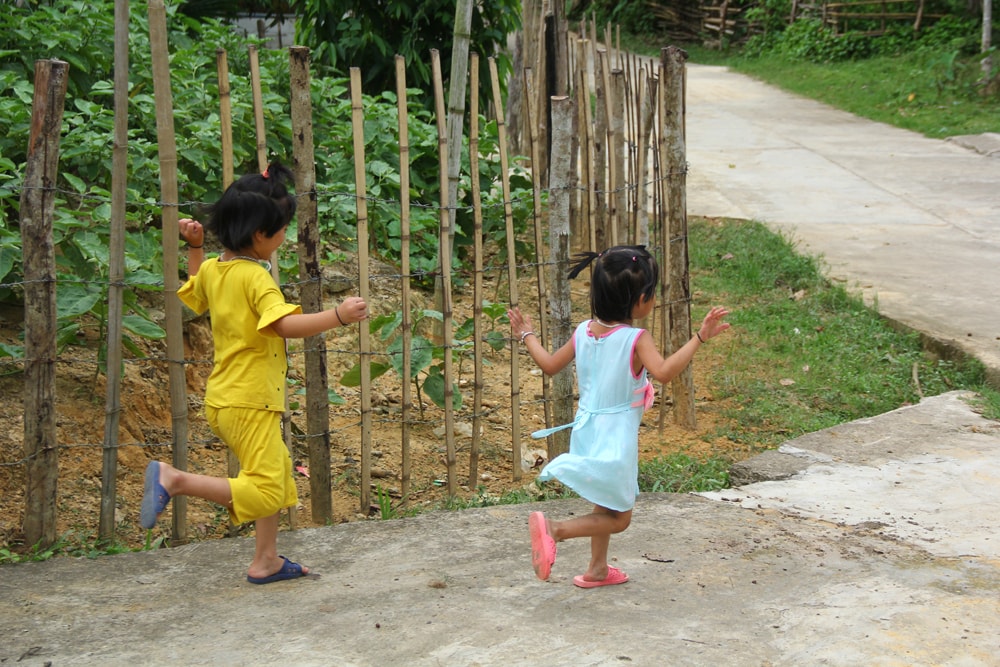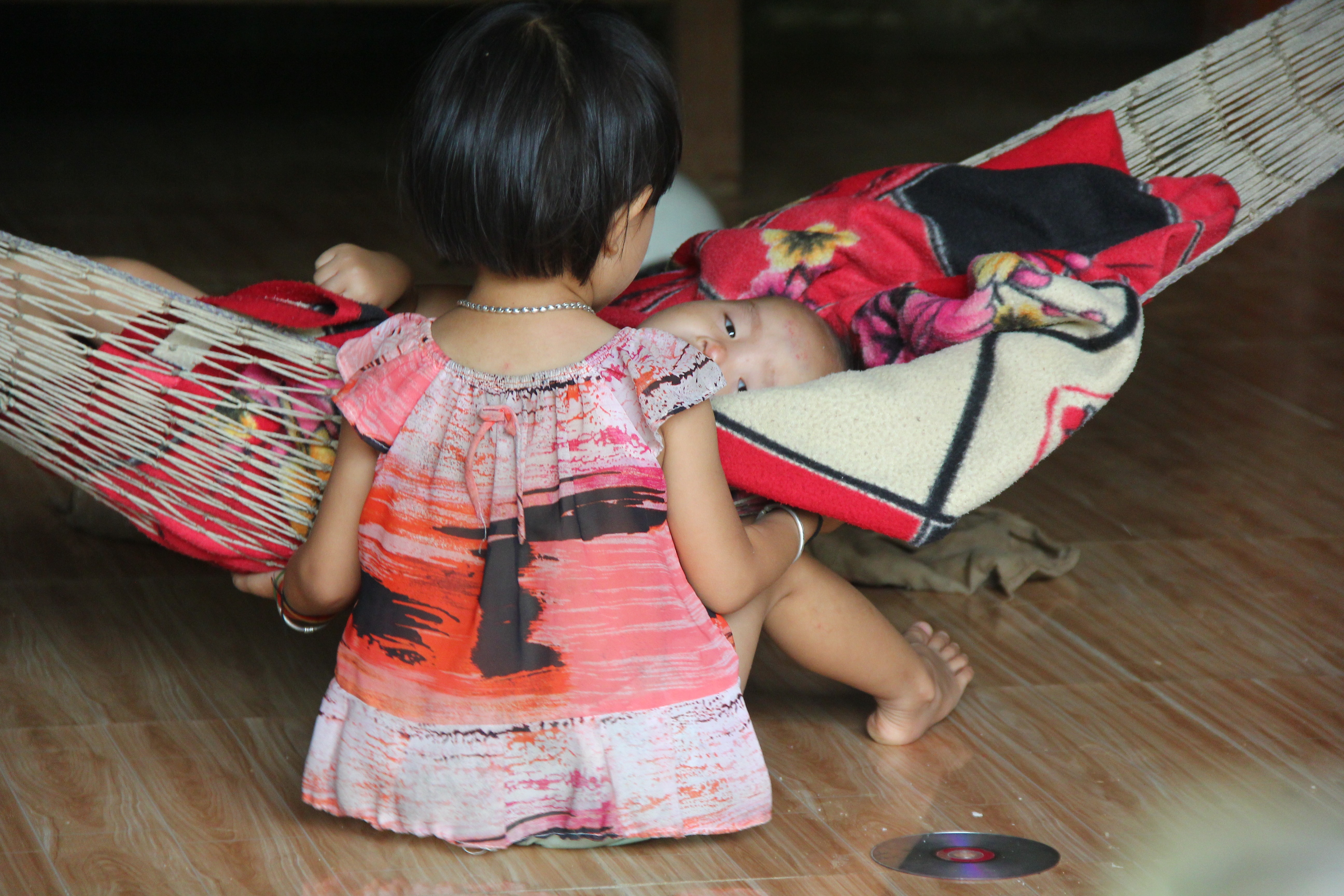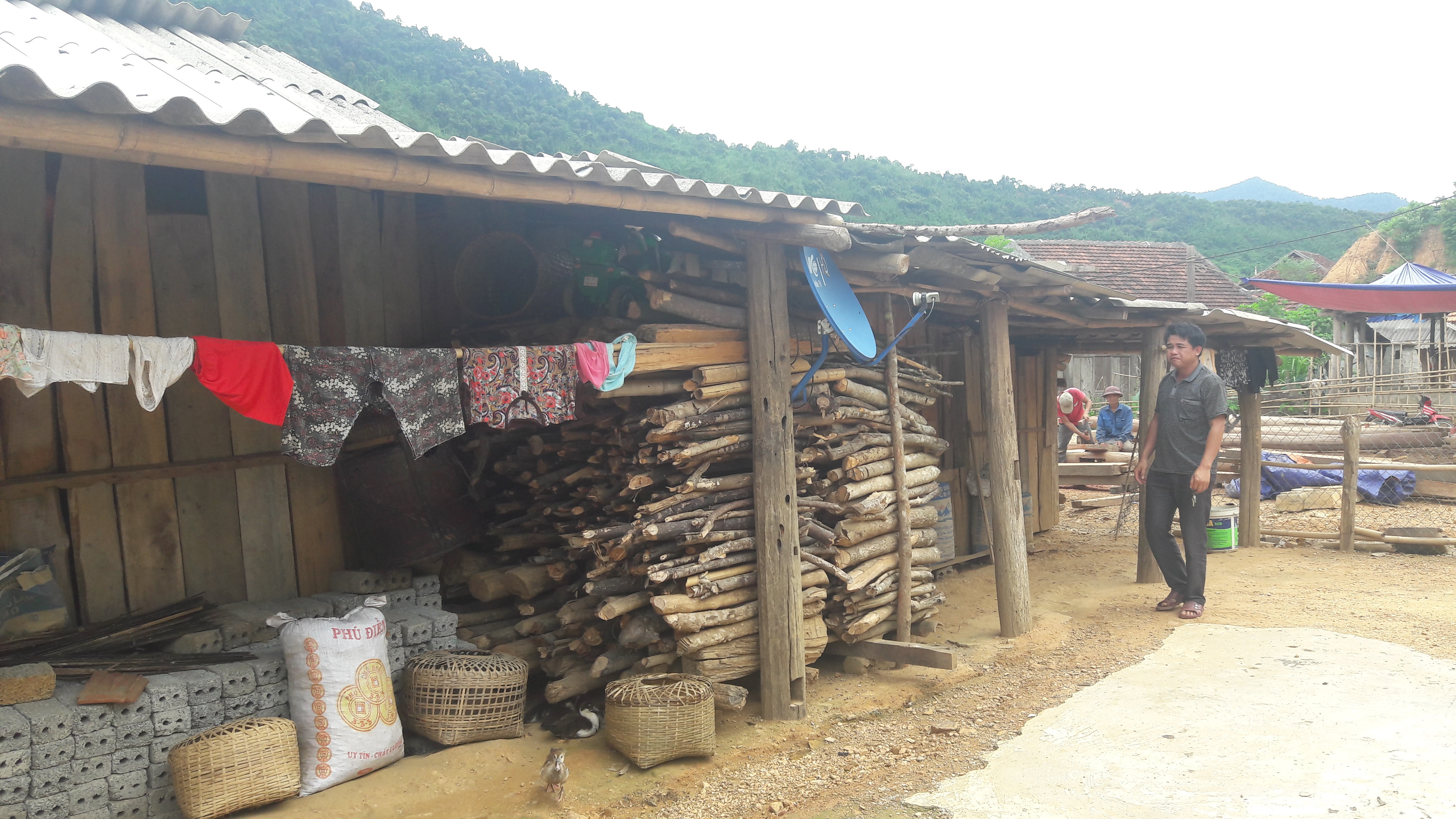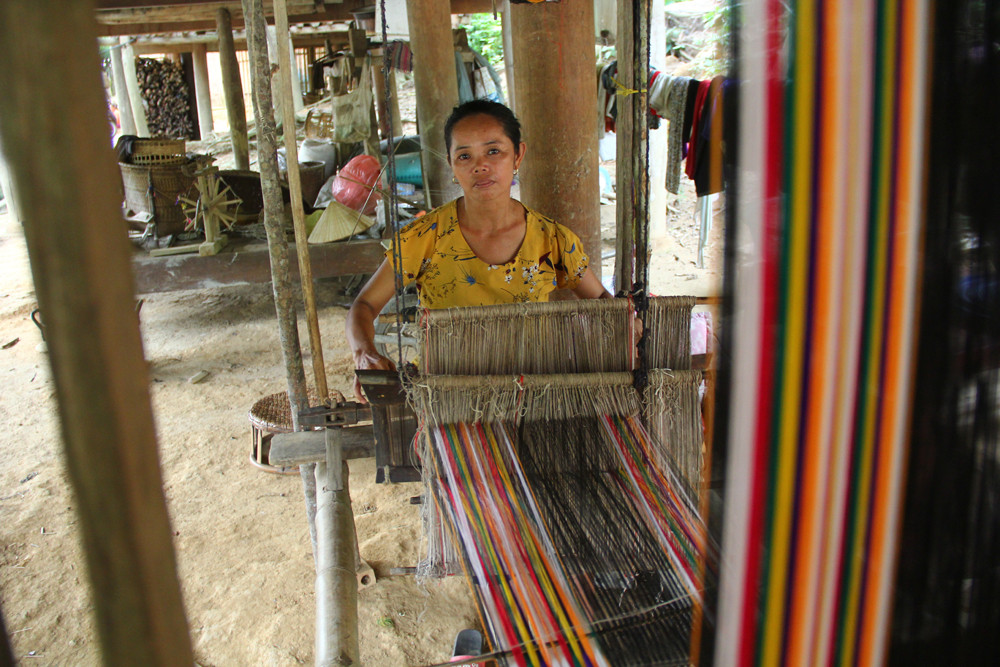Stories about children of Chinese origin
(Baonghean) - According to incomplete statistics, in Tuong Duong district there are more than 50 children whose fathers are Chinese. Most of their mothers are illegal workers or victims of human trafficking to China.
Children of mixed blood
On a late June day, on a small slope in Vang Mon village (Yen Hoa commune, Tuong Duong), nearly 10 children were engrossed in playing. Among the group of children, Lu Lu Lu (5 years old) stood out the most. Unlike the dark-skinned children in this highland village, Lu Lu had single eyelids and a rosy white face. In this village, Lu Lu's appearance was completely different from the other children, even her name, because this girl's father was Chinese.
 |
| Lu Lu Lu (yellow shirt) plays with other children in the village. Photo: Tien Hung |
“Even his name is Chinese,” said Lu Lu’s grandmother, Lo Thi Ty (41). “I don’t know who his father is, I only know he’s Chinese. He’s never been here, and I don’t know how old he is.”
Lu Lu's mother, Lu Thi Huong Lan (23 years old) is one of thousands of workers from Tuong Duong who used to work in China. More than 7 years ago, like many other young women in Yen Hoa, Huong Lan followed the invitation of her friends to seek a better life by going to China to work illegally. After only a short time here, Lan had a child with a Chinese man.
More than 2 years ago, on a rare visit to her hometown, Huong Lan brought her daughter, who was not yet 3 years old at that time. Lan told Mrs. Ty that the child's name in China was Lu Lu, asked her grandmother to take care of her, and then continued to go away. The woman then had to go to the government to register the child's birth with her mother's surname and that Chinese name.
According to a recent survey by the People's Committee of Tuong Duong District, there are currently more than 50 children under 10 years old with Chinese fathers in the area. Out of 18 communes in the district, this situation occurs in 12 communes. Most of the children are currently being cared for by their grandparents.
In Yen Na commune alone, there were 10 women who had children with Chinese men and then brought them back to their country for their relatives to take care of. In Yen Hoa commune, the number was 8 women, but there were some who brought back 2 children. Ms. Lo Thi Hoa (34 years old, Dinh Yen village, Yen Hoa commune) is one of them.
 |
| Ms. Hoa's two children, whose father is Chinese, live in Dinh Yen village. Photo: Pham Bang |
“I was shy so I didn’t ask much. I didn’t know who the children’s father was. I only knew that their mother worked in China and brought them back to raise,” said Ms. Lo Thi Chanh (47 years old), Hoa’s older sister. For many years, Ms. Chanh had to work hard to raise her sister’s two grandchildren. One was over 3 years old, the other couldn’t walk yet.
Mrs. Chanh said that Hoa had been married before. However, not long after the wedding, Hoa discovered that her husband was a serious drug addict. With no money to buy drugs, the man often beat his wife.
“Hoa then left her husband and went to China to make a living. Her ex-husband is currently in prison for drug trafficking,” said Ms. Chanh. She also did not know what her sister did for work abroad. For fear of upsetting her, she never once asked why the children’s father had abandoned them.
Similar to Mrs. Chanh, Mrs. Lo Thi Ui (60 years old, Xop Mat village, Luong Minh) has had to raise two grandchildren whose fathers are Chinese for many years. Mrs. Ui has two daughters, but both grew up and went to China to work illegally. Both of these daughters have children with Chinese men. Mrs. Ui's two grandchildren both have "very Chinese" names: Tieu Doanh and Tieu Quyen.
Lo Thi Hoan (31 years old), one of Mrs. Ui’s two daughters, was a beautiful young woman. Previously, Hoan was considered a wild flower in the drug capital. However, after finishing high school, Hoan followed her sister’s path – going to China to “work in a company”.
Hoan's Xop Mat village was once the drug capital, associated with names like "the village without husbands", because most of the men in the village either went to jail for drug trafficking or died early from addiction or HIV.
Mrs. Ui believes that in this land, there is nothing she can do to earn money to spend. Therefore, going to China to “work for a company” is the most feasible way to get rich. However, after many years of working abroad, she has not sent any money back from her two daughters, only sending her children back to be raised…
 |
| The house of Mrs. Lo Thi Ui in Luong Minh commune. Photo: Pham Bang |
“Regarding Mrs. Ui’s two daughters, the older sister recently returned to her country, bringing a man to live in the village. As for the younger sister, I heard that she is preparing to give birth to another child with a Chinese man and then bring her back to her grandmother to raise,” said Mr. Vi Dinh Phuc – Chairman of the People’s Committee of Luong Minh commune.
Many potential risks
Talking about these cases, Mr. Luong Ba Vin - Head of the Mass Mobilization Committee of Tuong Duong District Party Committee said that in the coming time, the situation will become more complicated, with potential risks of causing instability in national security, order, social safety, population growth...
“Every year during the Lunar New Year, these illegal couples often take their children back to their hometowns to celebrate Tet with their grandparents, then leave again. In some cases, they leave their children with relatives, and in others, after registering their household registration, they take their children to China,” said Mr. Vin, adding that there are many reasons for this situation.
Accordingly, there are some married women but because their husbands are addicted to drugs, their family life is in a deadlock, so the women find a way to free themselves by going to China to get married. Many others,because life is hard,Having to look for a job with a stable income is the common trend of rural and mountainous workers today, including female workers.
“Taking advantage of the above two reasons, some human traffickers have deceived laborers and brokers to bring these women to China. Some of those who went before have even brought their family members back to go with them,” said Mr. Vin.
 |
| For many years, Ms. Lo Thi Chanh has had to struggle to raise her sister's two children. Photo: Tien Hung |
Faced with the increasing number of children with Chinese fathers, Xiangyang district has proposed many solutions in the near future, such as the local government must strengthen state management of household registration, labor, and birth registration for children; detect and fight against these subjects.human trafficking,Women, children, labor fraud, brokering women to marry Chinese men to operate in the area.
The entire political system, especially the Women's Union, must get involved in propagating and mobilizing all classes of people in general and women in particular, not to listen to or believe in human traffickers.,women, girls, labor fraud, brokering women to marry Chinese men.
“Regarding a long-term solution, the Central Government and local authorities at all levels need to really pay attention to solving this problem, considering it a pressing issue that has arisen, is complicated, and has the potential to cause instability in security, order, and social safety,” said Mr. Luong Ba Vin.

